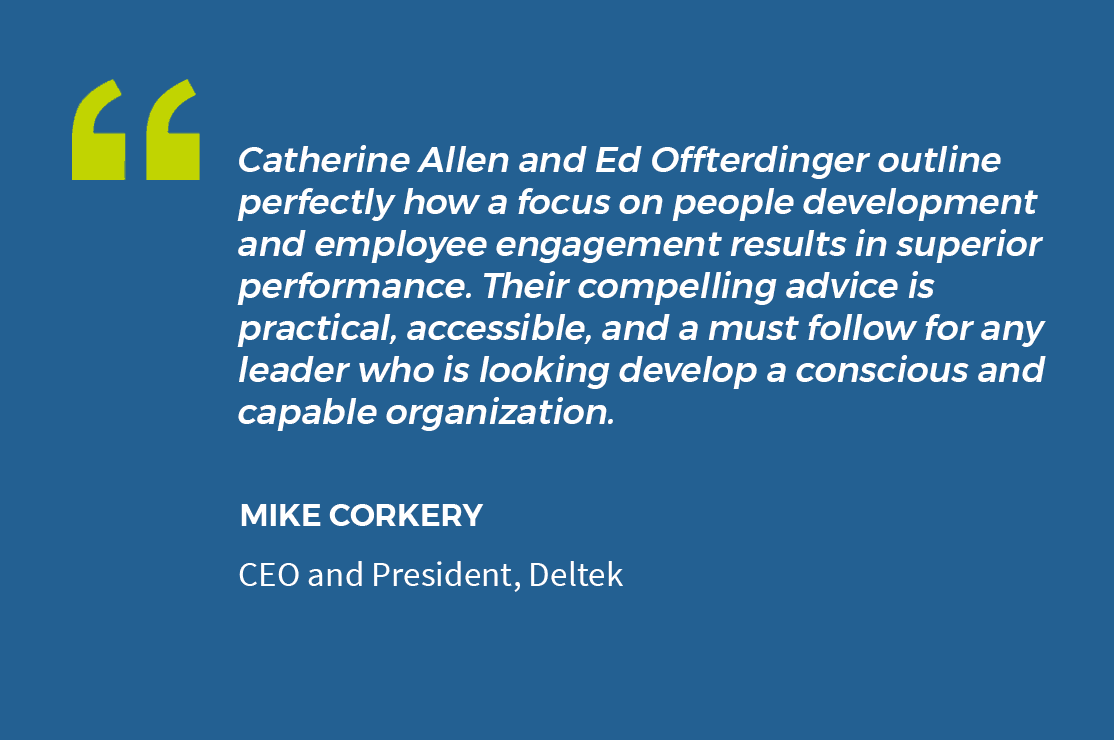- October 14, 2020
- Posted by: aopp-admin
- Categories: Business Strategy, HR Strategy, People Development, Retention

This school year is far different from any other—but even so, this fall marks the start of a new year of learning for students across the country. Have you ever wondered why this level of education typically stops in our early 20s when people graduate college, graduate school, or technical vocation training?
I have and the truth is in today’s world, it just doesn’t make sense. We tend to think that most of our development happens in the formative years and stops once we graduate. In other words, we get trained and embark on the working world. But we know now that people really must continue developing themselves as they advance in their careers—especially if they want to become leaders.
A lot of organizations focus on enhancing their talent’s technical skills, and they invest in leadership skills once people rise to a certain level or are identified as having high potential—but far fewer think about helping all their people develop the softer skills as part of their everyday work—the brain-based skills and inter-personal skills we call mind skills and people skills, respectively.
In today’s complex and fast changing world, businesses need people to operate at higher levels of cognitive, emotional, and social intelligence. When organizations work well, people have to know: how to express themselves honestly and directly, how to give and get feedback, how to collaborate, and how to disagree and be okay with it. People don’t intuitively know how to do these things. In fact, these tend to be the areas that people most commonly get tripped up about in their day-to-day work and performance reviews, and it has a deep impact on an organization’s productivity, efficiency, and culture—not to mention a person’s career trajectory.
Often organizations wait to invest in teaching these skills until well into someone’s career. We at the Allen Offterdinger Group (AO) and a growing number of conscious companies are now asking “why wait so late in the game?” Many businesses and leaders are starting to recognize that there are big benefits for them, their talent, and society when leadership development starts far earlier in people’s careers.
Organizations are starting to embrace this idea that the skills conscious leaders need are the skills that everybody needs and deserves. Here are 3 steps organizations can take to invest in people development.
Recognize that Day-to-Day Work is the Curriculum
When organizations are deliberate, thoughtful, and conscious about developing their people, they start to intentionally build in learning opportunities through their daily processes, interactions, and language. This involves discussing soft skills in day-to-day work and integrating discussions about mind and people skills like critical thinking, empathy, compassion, feedback skills, and even kindness into the way they think, conduct everyday work, and evaluate employee performance.
When development of people is a business requirement, it becomes the way in which people work and learn so growth becomes a part of everyday work. Everything and everyone become an opportunity for learning and growth. People and their organizations benefit.
Encourage a Culture Change
When development becomes an aspect of an employee’s performance, the culture starts to change. The stigma of mistakes is removed, and the fear of feedback and judgment is taken away, and a growth mindset begins to take root. Performance is no longer judged solely by how well someone does a task but instead how open they are to their own development and how well they’re helping others with theirs. This is what creates bonds and builds positive relationships—people become invested in helping each other develop and grow.
When we all build the mindset that everything and everyone at work is a source of learning and growth, we develop the ability to learn and adapt faster. Leaders who can model this mindset develop stronger leadership capabilities throughout their organization. That’s good for business and good for developing people capabilities.
Look Beyond your Business Mission
Inspiring and supporting the conscious practice of people development at work requires businesses to see themselves as entities in an expanded way and recognize that their purpose is not solely limited to their business mission, product, or service. No matter their industry, every business can be a conscious source of contributing more capable people.
That’s the foundation of Conscious Capitalism – a growing global movement committed to elevating humanity through business. More and more companies are embracing the guiding principles of Conscious Capitalism: Higher Purpose, Stakeholder Orientation (of which employees are one stakeholder), Conscious Leadership, and Conscious Culture. At AO, we believe that developing people and equipping them with the capabilities they need to flourish in the 21st century is not only key to business success, it is what will make the most positive difference in our world. It is how conscious companies can best contribute to elevating humanity. We envision a world in which the conscious practice of people development is a recognized and incentivized social contribution of 21st Century organizations—as important as environmental sustainability practices and philanthropic practices.
The world of work is transforming for the development of people and I invite you and your organization not only to embrace the change—but more importantly—to become a conscious part of it.
Catherine Allen is Co-Founder and CEO of the Allen Offterdinger Group (AO), a leadership development and people strategy firm based in Washington, D.C. Connect with her on LinkedIn.

